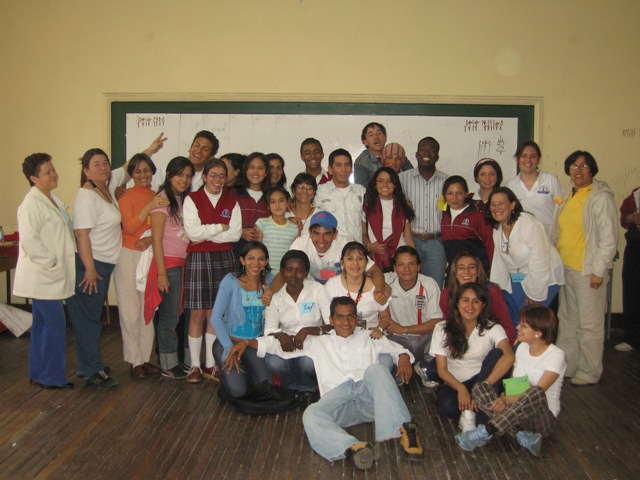A workshop to train facilitators on how to use the Toolkit for Ethics Education, developed by the Interfaith Council on Ethics Education for Children was held in Bogotá, Colombia, 13-16 November 2007.
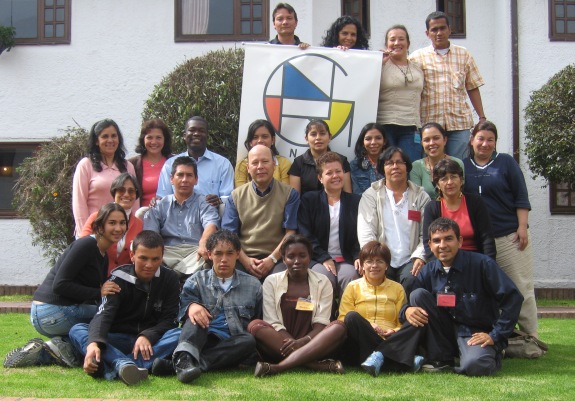
A three day workshop was organized in Bogotá, Colombia to introduce the Toolkit for Ethics Education through Interfaith Learning to adults working with children and youth in Colombia and Ecuador.
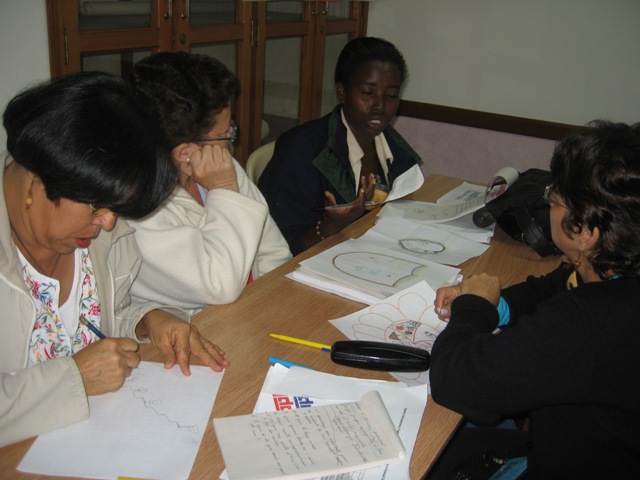 23 participants from different Christian denominations gathered in Bogotá to discuss how the Toolkit can be used in their countries and how it can be instrumental in their endeavor to fight the ethical challenges that children and youth face. All the participants were selected by their religious organizations and had experience working with children.
23 participants from different Christian denominations gathered in Bogotá to discuss how the Toolkit can be used in their countries and how it can be instrumental in their endeavor to fight the ethical challenges that children and youth face. All the participants were selected by their religious organizations and had experience working with children.
During the workshop they discussed the most challenging issues affecting children and youth and the role religious organizations play in nurturing values and spirituality in children, specifically in a context of violence and social and economic inequalities. Domestic violence and the lack of spaces for children and youth to express their views and to participate were highligthed as key issues to be discussed and taken into consideration when working on ethics education. The importance of working with the whole family and especially with parents was also considered as a priority to ensure the Toolkit has a clear impact on the Ecuadorian and Colombian societies.
The Toolkit was presented as a material to be used by religious and secular organizations to work for the wellbeing of children. Participants reflected on how their own religious groups are sometimes exclusive towards other groups, even within Christian communities. They expressed how exclusivism becomes a barrier to work inter-religiously and ecumenically and attempts against the need to build respectful societies. Insightful reflections were made on how stereotypes and prejudices have shaped up participants’ identities and have led one of them to even hide her own religious beliefs. 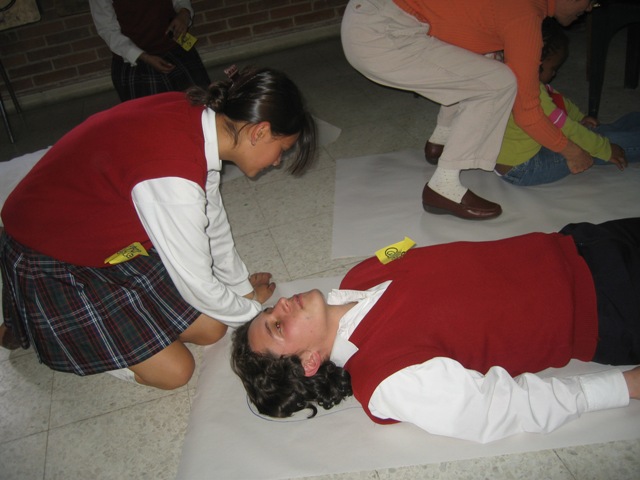

Participants discussed the importance of critical thinking and the role of education to nurture ethical behaviors and attitudes. They discussed and analyzed the concept of “banking” education, where children are treated as empty accounts that need to be filled by the teacher. Methodologies that are participative, allowing the child to express, share and develop his/her creativity were identified as important in ethics education.
During the second day, participants went to a school in the south part of Bogotá where they conducted sessions based on the Toolkit with children from 14 to 17 years. The adults who acted as facilitators worked in groups of six and developed two sessions based on the module Understanding Self and Others. In the afternoon, children discussed conflicts that affected them and analyzed possible ways to transform those situations, as part of the second module Transforming the World.
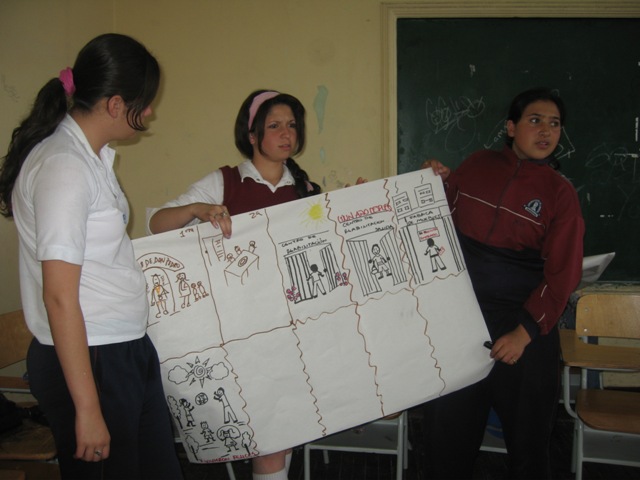 Children expressed it was a good opportunity to do different activities to what they are normally used to in schools, to discuss topics of interest for them and to share their own experiences. They asked facilitators to continue providing this kind of spaces and to promote this type of initiatives in their school.
Children expressed it was a good opportunity to do different activities to what they are normally used to in schools, to discuss topics of interest for them and to share their own experiences. They asked facilitators to continue providing this kind of spaces and to promote this type of initiatives in their school.
The last day of the workshop participants made commitments to work together to promote ethics education in their countries to face the challenges of domestic violence. They also committed to use the Toolkit as a practical resource in their activities with children and youth. The expectations of the workshop were fulfilled by most of the participants. Recommendations were made to follow up with the students of the school they visited and to provide more practical days with children and youth. Participants also asked for more time for reflection and for internalization of the values promoted in the Toolkit.
Special thanks to Mrs. Mercedes Román, GNRC Coordinator for Latin America and the Caribbean and Mr. Osvaldo Ardila, GNRC Coordinator for Colombia for organizing the workshop and assisting the Interfaith Council Secretariat in promoting the Toolkit.
The initiative is part of a series of training workshops to train educators and facilitators on the use of the Toolkit. Similar workshops have been held in Ecuador, Jordan, India and El Salvador during this year.
